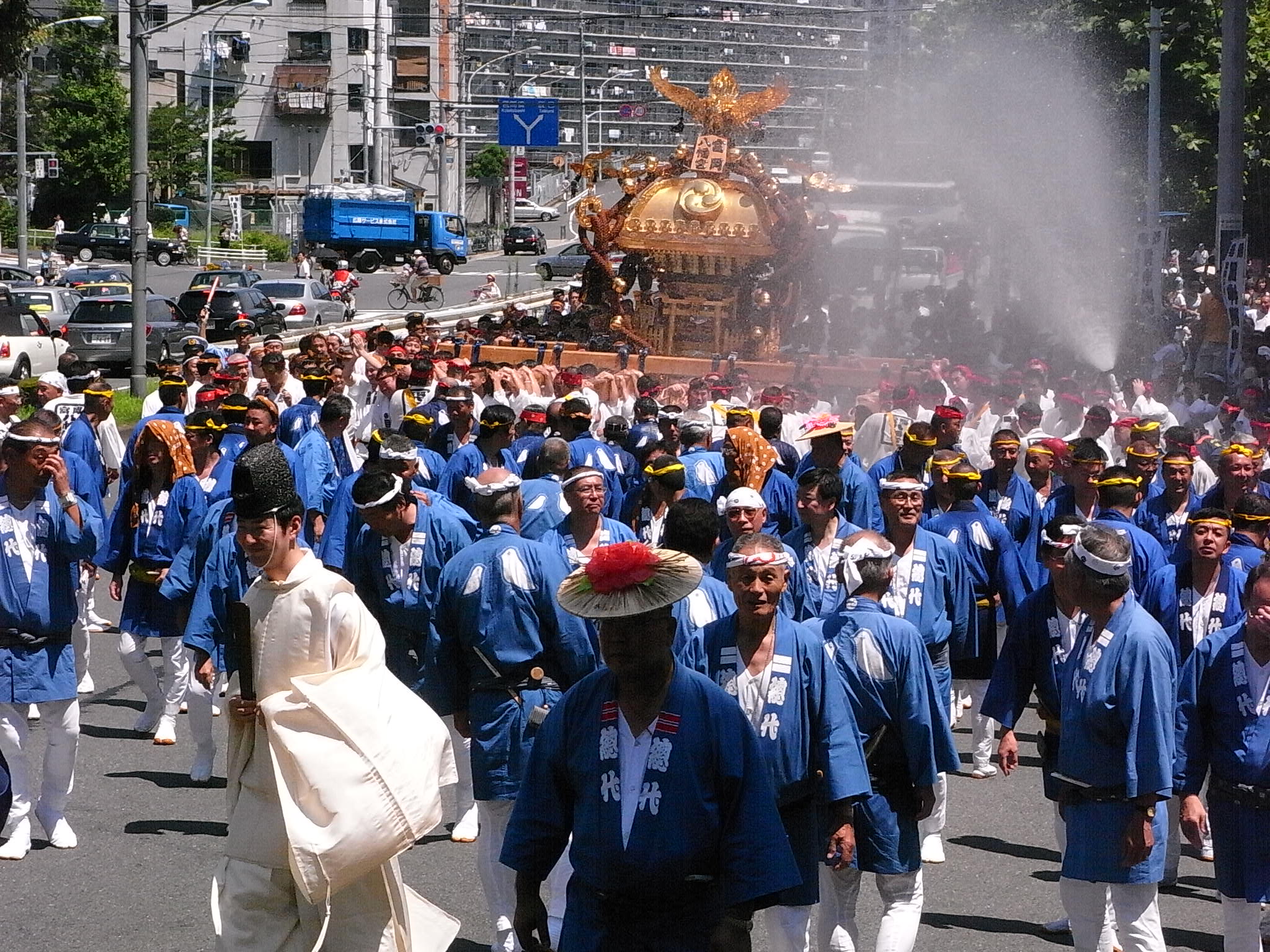Fukagawa Matsuri on:
[Wikipedia]
[Google]
[Amazon]


 or the Fukagawa Festival, is one of the three great
or the Fukagawa Festival, is one of the three great


 or the Fukagawa Festival, is one of the three great
or the Fukagawa Festival, is one of the three great Shinto
, also called Shintoism, is a religion originating in Japan. Classified as an East Asian religions, East Asian religion by Religious studies, scholars of religion, it is often regarded by its practitioners as Japan's indigenous religion and as ...
festivals of Tokyo
Tokyo, officially the Tokyo Metropolis, is the capital of Japan, capital and List of cities in Japan, most populous city in Japan. With a population of over 14 million in the city proper in 2023, it is List of largest cities, one of the most ...
, along with the Kanda Matsuri
or the Kanda Festival, is one of the three great Shinto Festivals in Tokyo, festivals of Tokyo, along with the Fukagawa Matsuri and Sannō Matsuri. The festival started in the early 17th century as a celebration of Tokugawa Ieyasu's decisive vic ...
and Sannō Matsuri
or the Sannō Festival, is a major Shinto festival in Tokyo, along with the Fukagawa Matsuri and Kanda Matsuri. The Festival takes place annually in mid-June, but involves a procession called Shinkosai in even-numbered years only; annual cele ...
.
The Fukagawa Matsuri is held annually in mid-August by the Tomioka Hachiman Shrine
is the largest Hachiman shrine in Tokyo.
History
The shrine was established in Fukagawa in with reclamation of a shoal. Hachiman, whom the shrine reveres, was also a local kami of the Minamoto clan, thus the shrine received cordial protection ...
in Koto, Tokyo. Tomioka Hachimangu, also known as Tomioka Yawata shrine, is Fukagawa's greatest shinto shrine, and was established in 1627. The festival, is believed to date back to 1642, and is one of the three greatest festivals of Edo, together with Sanno Matsuri of Kojimachi Hie Shrine and Kanda Matsuri
or the Kanda Festival, is one of the three great Shinto Festivals in Tokyo, festivals of Tokyo, along with the Fukagawa Matsuri and Sannō Matsuri. The festival started in the early 17th century as a celebration of Tokugawa Ieyasu's decisive vic ...
of Kanda Shrine
, is a Shinto shrine located in Chiyoda, Tokyo, Japan. The shrine dates back 1,270 years, but the current structure was rebuilt several times due to fire and earthquakes. It is situated in one of the most expensive estate areas of Tokyo. Kanda ...
.
See also
*Culture of Japan
Japanese culture has changed greatly over the millennia, from the country's prehistoric Jōmon period, to its contemporary modern culture, which absorbs influences from Asia and other regions of the world.
Since the Jomon period, ancestral ...
* Japanese calendar
Japanese calendar types have included a range of official and unofficial systems. At present, Japan uses the Gregorian calendar together with year designations stating the Japanese era name, year of the reign of the current Emperor. The written f ...
* Japanese festivals
Japanese festivals, or , are traditional festive occasions often celebrated with dance and music in Japan. The origin of the word ''matsuri'' is related to the ; there are theories that the word ''matsuri'' is derived from meaning "to wait (for ...
* Festivals in Tokyo
Tokyo holds many festivals (''matsuri'') throughout the year. Major Shinto shrine festivals include the Sanno Festival at Hie Shrine, and the Sanja Festival at Asakusa Shrine. The Kanda Matsuri in Tokyo is held every two years in May. The fes ...
External links
* {{authority control Religious festivals in Japan Festivals in Tokyo Culture of Japan Shinto festivals Shinto in Tokyo Festivals established in the 17th century Recurring events established in 1642 1642 establishments in Asia Summer in Japan Fukagawa